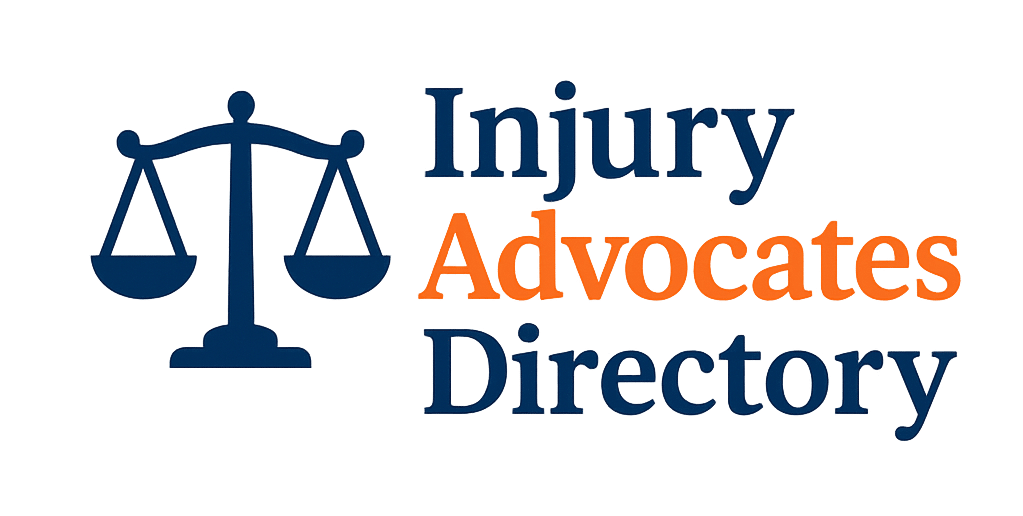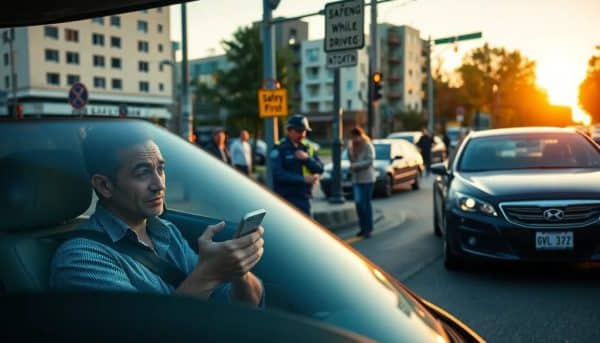Distracted driving is a growing concern, as it leads to numerous accidents resulting in injuries and fatalities. These incidents often raise complex legal issues regarding liability and compensation. Understanding the legal consequences of distracted driving accidents is essential for victims and offenders alike.
This article delves into the various aspects of distracted driving, including its definition, the types of distractions, the evidence required to prove negligence, and the legal ramifications involved. Additionally, we will explore the steps victims can take to seek compensation, supported by relevant statistics and legal penalties.
What are distracted driving accidents?
Distracted driving accidents occur when a driver’s attention is diverted from the road, leading to potentially dangerous situations. These distractions can be classified into three categories: visual, manual, and cognitive. For instance, texting while driving encompasses all three types, making it particularly hazardous.
The prevalence of smartphones and in-car technologies has exacerbated this issue, resulting in a significant increase in motor vehicle crashes linked to distracted driving. In fact, many states now classify distracted driving as a form of negligence, holding offenders accountable for their actions.
Victims of distracted driving incidents often experience severe injuries or even fatalities. The legal consequences can be substantial, ranging from fines to civil liability, depending on the severity of the incident. Understanding these potential outcomes can help victims navigate the aftermath of an accident more effectively.
How do distracted driving accidents lead to legal consequences?
Distracted driving is treated as a negligent act in many jurisdictions. This means that when a driver engages in distracting behavior, they breach the duty of care owed to other road users. Legal consequences arise when this breach results in an accident causing injury or damage.
In cases of distracted driving, the following legal outcomes may occur:
- Fines and Penalties: Offenders may face monetary fines depending on state laws surrounding distracted driving.
- Civil Lawsuits: Victims can file lawsuits seeking compensation for damages incurred during the accident.
- Criminal Charges: Severe cases, especially those resulting in fatalities, may lead to criminal charges against the driver.
The determination of liability often hinges on whether the driver displayed negligence. To establish this, victims must typically prove that the driver failed to act with reasonable care, directly leading to the accident.
What are the common types of distracted driving?
Distracted driving can take many forms. Some of the most common types include:
- Texting: Sending or reading text messages while driving is one of the most dangerous distractions.
- Talking on the phone: Engaging in conversations, even hands-free, can divert attention from the road.
- Eating or drinking: Consuming food or beverages can lead to temporary distractions that increase the risk of accidents.
- Adjusting in-car technology: Changing the radio station or using navigation systems while driving can lead to significant distractions.
- Interacting with passengers: Conversations with passengers can also contribute to driver distraction.
Each of these distractions can contribute to the likelihood of an accident occurring, emphasizing the need for drivers to remain focused on the road.
What evidence is needed to prove distracted driving?
To pursue a claim following a distracted driving accident, victims must collect sufficient evidence to support their case. The following types of evidence can be critical:
- Witness Statements: Eyewitness accounts can corroborate claims of distracted driving.
- Phone Records: Records showing text messages or calls made around the time of the accident can establish distraction.
- Accident Reports: Official police reports often contain valuable details regarding the accident.
- Photographic Evidence: Photos of the accident scene can help illustrate the circumstances surrounding the incident.
Gathering this evidence promptly is essential, as it can significantly impact the outcome of any legal proceedings.
How can victims seek compensation after a distracted driving accident?
Victims of distracted driving accidents have the right to seek compensation for distracted driving accidents. The process typically involves several steps:
1. Documentation: Victims should collect all relevant evidence, including medical records, police reports, and witness statements.
2. Medical Treatment: Seeking immediate medical attention is crucial, not only for health reasons but also to document injuries sustained during the accident.
3. Consultation with an Attorney: Engaging with a legal professional experienced in distracted driving cases can help victims understand their rights and the compensation process.
4. Filing a Claim: Victims may file a claim with the driver’s insurance company or pursue a lawsuit if necessary.
5. Negotiation: Legal representatives often negotiate with insurance companies to secure a fair settlement for damages, including medical expenses, lost wages, and pain and suffering.
Acting swiftly is essential, as many states impose strict timelines for filing claims, known as statutes of limitations.
What are the statistics on distracted driving accidents?
Statistics highlight the severity of distracted driving as a major contributor to road accidents. According to recent studies:
- Approximately 9% of fatal crashes involve distracted driving.
- Texting while driving increases the likelihood of an accident by 23 times compared to driving without distractions.
- In the United States, distracted driving accounts for nearly 400,000 injuries annually.
These figures underscore the urgent need for awareness and legislative action to curb distracted driving behaviors.
What are the legal penalties for distracted driving?
Penalties for distracted driving can vary significantly by state but generally include the following:
- Traffic Citations: Offenders often receive tickets with monetary fines.
- License Points: Accumulating points on the driver’s record can lead to increased insurance premiums.
- Increased Insurance Rates: Convictions may result in higher costs for future insurance policies.
- Criminal Charges: In severe cases, distracted driving that leads to injury or death can result in felony charges.
Understanding these penalties can motivate individuals to remain focused while driving and adhere to distraction-free habits.
Frequently asked questions about distracted driving accidents and their consequences
What are the real consequences of distracted driving?
The consequences of distracted driving can be both immediate and long-term. Victims may experience physical injuries, emotional trauma, and financial burdens related to medical costs and lost wages. Additionally, offenders can face legal repercussions, including fines, civil liability, and potential jail time, depending on the severity of the incident.
What are the first offense consequences for distracted driving?
For a first offense of distracted driving, penalties typically include fines, points on the driver’s license, and mandatory traffic school in some jurisdictions. Repeat offenders may face more severe consequences, including increased fines and license suspensions.
Can cops prove you were texting and driving?
Yes, law enforcement can often prove texting and driving through various means. They may examine phone records, witness statements, and physical evidence from the scene to establish that the driver was engaged in distracting behavior at the time of the accident.
What is the law on distracted driving in Virginia?
In Virginia, distracted driving laws prohibit any use of handheld devices while driving. Offenders can face fines and points on their driving record. Additionally, if a distracted driver causes an accident, they may be held liable for any damages resulting from the incident, including compensation claims from victims.

